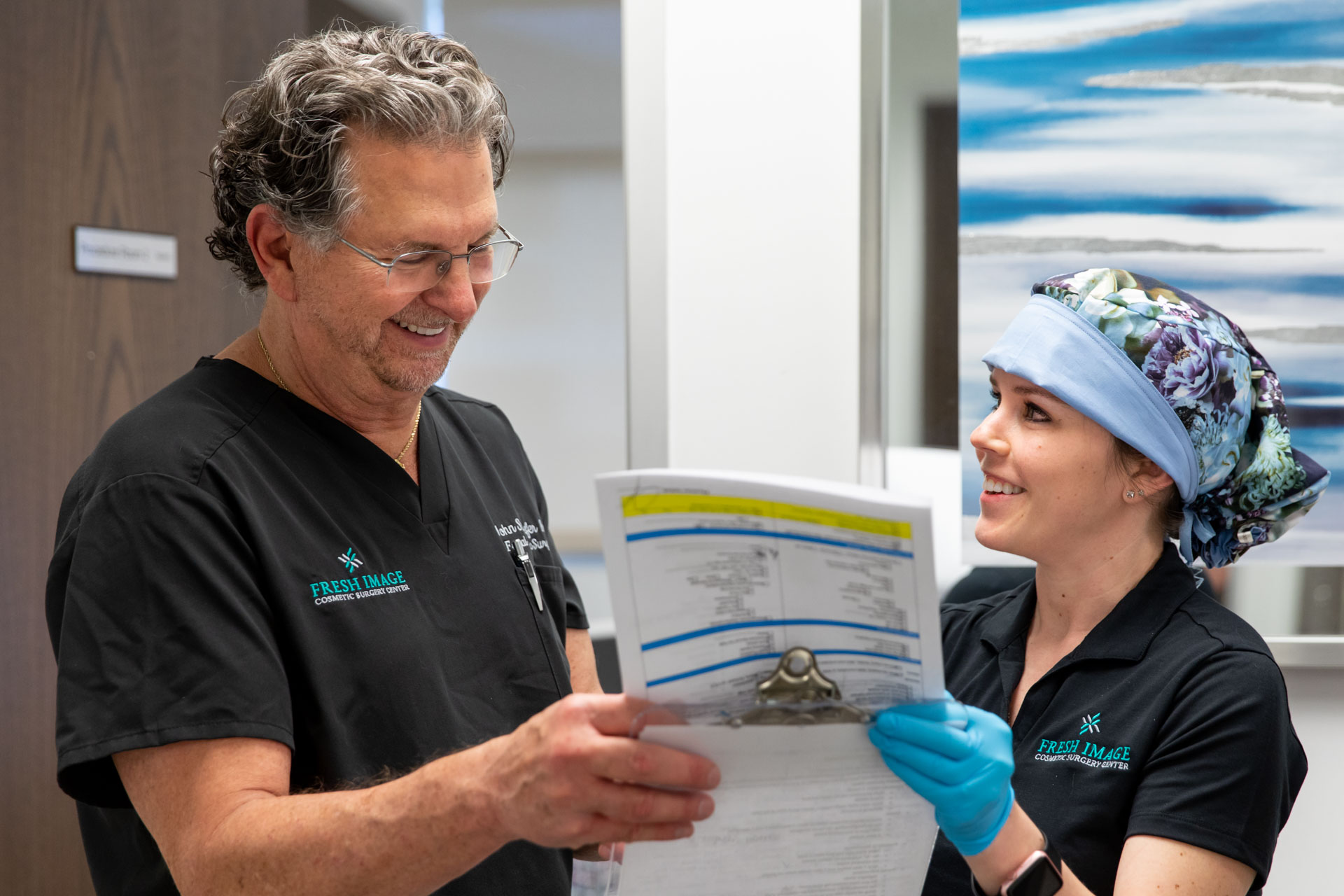

| January 21, 2020
Choosing the Right Plastic Surgeon
When to Choose a Facial Plastic Surgeon vs. a General Plastic Surgeon
– Written by Dallas plastic surgeon, Dr. John Standefer
As a facial plastic surgeon in Dallas, I hear many patients talk about how they have a difficult time choosing a plastic surgeon. There are many to choose from in the Dallas metroplex, but it is important to understand how to find the best plastic surgeon for your unique needs.
Your choice of the best surgeon comes down to who you can trust to provide you with the results that you desire. The trust factor is paramount, because you and your plastic surgeon should act as a “team”. You have to trust that your surgeon can deliver the desired result, but your surgeon has to trust that you will be just as committed to the plan of treatment. You become partners. First of all, you have to feel comfortable not only with the surgeon, but also with the staff, the nurses, the technicians, and the facility. First impressions are very important. Next, consider the experience of your plastic surgeon. How many of these types of surgery do they perform? Are these cosmetic procedures the only procedures they do, or do they do all types of cosmetic procedures? Do they have reviews from happy patients? Do they have before and after photographs of patients that have had the type of cosmetic surgery that you are considering?
Differences in Training Between Facial Plastic Surgeons and General Plastic Surgeons
Is your surgeon board certified in facial plastic or general plastic surgery? In general, facial plastic surgeons are trained as otolaryngologists (ear, nose, and throat specialists). Otolaryngologists concentrate on the anatomy and physiology of the head and neck structures. Their training consists of all things related to the ears, the nose and sinuses, but more importantly to the tissues inside and outside of the face and neck. Who better to understand the anatomy of the important structures in the face and neck? A major part of otolaryngology training is in the treatment of cancer patients who require resection and reconstruction of the tissues of the face and neck. Reconstruction of these areas is much more complex than any of the normal facial plastic procedures they perform. Many otolaryngologists expand their training to concentrate on only facial plastic surgery. That includes not only cosmetic nasal procedures like rhinoplasty, but other plastic surgery procedures including eyelid surgery, brow lifts, face lifts, protruding ear corrections (otoplasty), and skin care and laser correction of the effects of father time, sun damage, and/or smoking. Remember, most “nasal” problems are referred to Otolaryngologists, so they have the most experience in treating not only nose and sinus problems, but also nasal and septal deformities whether they are from trauma or for cosmetic reasons.
General plastic surgeons usually begin their training in general surgery. Their plastic surgery training follows the general surgery training either in the latter part of their residency or following the completion of their residency. Their focus during their training both as general surgeons and during their plastic surgery training is on the whole body. These include breast reconstruction and augmentation, liposuction and tummy tucks, abdominoplasties, hand reconstructions etc. As a result, there is less emphasis placed on nasal and facial issues during training. That is not to say that many general plastic surgeons do have experience and expertise in these areas. It is a fact that many training programs are not designed to offer extensive experience in all areas of all types of plastic surgery. Many plastic surgeons go on to specialize in facial plastic surgery procedures, but the reality is that there are many more requests for body procedures than rhinoplasty and facelift procedures. Human nature is such that they spend most of their time on things related to the body and less on things related to the face. It is impractical to be a specialist in all aspects of every type of cosmetic procedure. Most surgeons either by choice or circumstance focus primarily on one area of the body or face.
When you are ready to meet with a plastic surgeon for a facial plastic surgery consultation, ask the most important question: What is the experience and expertise of your surgeon?
As a double board-certified otolaryngologist and facial plastic surgeon, Dr. John Standefer is qualified to perform various facial cosmetic surgery procedures.